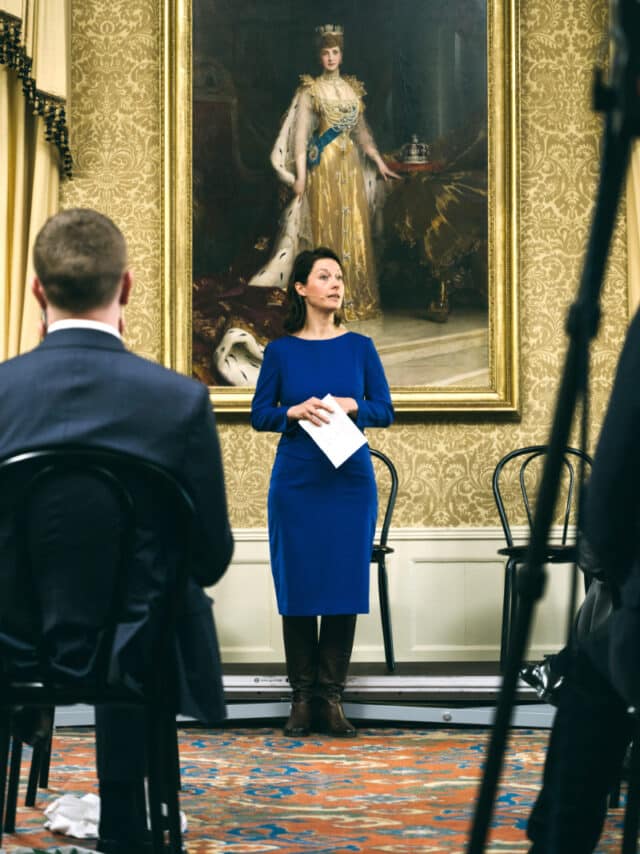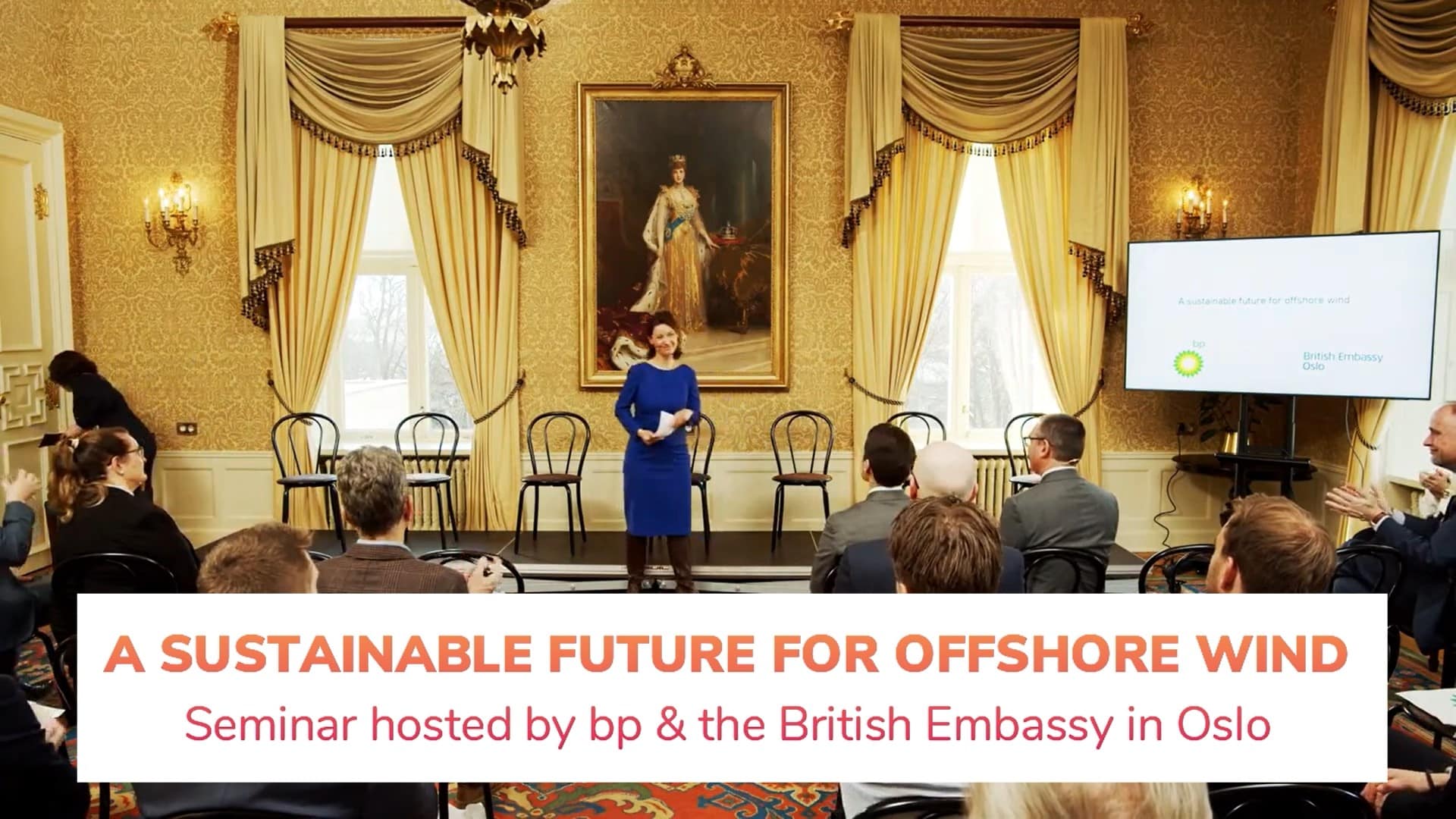Sørlige Nordsjø 2 is opportunity to set bar for project sustainability
Category
Sustainability
Date
14 March 2023
Location
Offshore
Norway is ideally positioned to set a new global benchmark in offshore wind deployment if it adopts an approach now that places a premium on long-term sustainability for its environment, its communities and the industry itself.
That was the message delivered by Mainstream’s Ingrid Lomelde last week at an Oslo seminar hosted by bp and the British Embassy, as the country’s policymakers near a decision on an auction model to allocate sea areas for wind development.
The Group Head of Sustainability welcomed the strong focus that the Norwegian government has placed on non-price factors in its proposed pre-qualification criteria for licence bids. She told her audience that an enhanced pathway for the first 1.5 Gigawatt phase of the Sørlige Nordsjø II (SN2) licencing area, due to be announced in the coming weeks, should account for the ‘planet positive’ benefits of green jobs, decarbonised supply chains and biodiversity protections.
"We can find sustainable solutions that can benefit people, the planet and the industry if we identify them early enough to consider them before project designs are closed."
Ingrid Lomelde
Group Head of Sustainability
And she added that partnerships – like Mainstream’s SN2 consortium with bp and Statkraft, which draws on deep experience in North Sea energy projects – “really are key to find the pathways to sustainable development for our industry”.

Mainstream’s Ingrid Lomelde addresses the seminar audience at the British Embassy in Oslo
Lomelde said: “Together, we forsee Norway will be the market where sustainable approaches can be tested, scaled and implemented to the benefit of the global offshore wind industry.
“Through close co-operation with the industry supply chain, but also with local communities and the science community, we can find sustainable solutions that can benefit people, the planet and the industry if we identify them early enough to consider them before project designs are closed.
“That’s why the non-price criteria are so important, because you really need to integrate this at the earliest stage of project development.”
The panel event – A sustainable future for offshore wind: Ideas and experiences from the UK – heard of current pioneering Mainstream initiatives focused on the recycling of end-of-life turbines blades, the use of digital data to improve co-existence of marine users, and research into the impact of offshore projects on bird and marine life populations.
Reaffirming the readiness of Mainstream and its SN2 partners to “pull together” for sustainable wind development in Norway, Lomelde urged the country’s policymakers to consider “how you use non-price criteria to support that combination of social sustainability, economic sustainability for the industry – because it actually has to be profitable to build these projects – and then sustainability for the planet”.
- Watch Ingrid Lomelde’s full presentation and Q&A session contributions in the video above, and learn more about Mainstream’s SN2 joint venture project on the consortium website.
Related News
View all News
Media Enquiries

Emmet Curley
Head of Communications and Positioning
